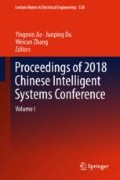Abstract
In this paper, discrete-time signed networks with cooperative and antagonistic interactions are considered in the presence of time-varying topologies. A separation approach is proposed such that the cooperations and antagonisms can be clearly distinguished. It is shown that given the repeated joint strong connectivity, signed networks can achieve bipartite consensus (respectively, stability) if and only if the repeated joint structural balance (respectively, unbalance) are ensured. Furthermore, when only joint spanning tree condition is satisfied, quasi-interval bipartite consensus (respectively, stability) holds if and only if the repeated joint structural balance (respectively, unbalance) can be guaranteed for the signed digraphs formed by only these joint root nodes. The simulation tests are included to verify the effectiveness of our obtained results.
Access this chapter
Tax calculation will be finalised at checkout
Purchases are for personal use only
References
L. Jure, H. Daniel, K. Jon, Signed networks in social media, in Proceedings of the 28th International Conference on Human Factors in Computing Systems, Atlanta, GA, USA, April 2010, pp. 1361–1370
A. Daron, O. Asuman, Opinion dynamics and learning in social networks. Dyn. Games Appl. 1(1), 3–49 (2011)
A.V. Proskurnikov, A. Matveev, M. Cao, Opinion dynamics in social networks with hostile camps: consensus vs. polarization. IEEE Trans. Autom. Control 61(6), 1524–1536 (2016)
M.E. Valcher, P. Misra, On the consensus and bipartite consensus in high-order multi-agent dynamical systems with antagonistic interactions. Syst. Control Lett. 66(66), 94–103 (2014)
J. Hu, W. Zheng, Bipartite consensus for multi-agent systems on directed signed networks, in Proceeding of the 52nd IEEE Conference on Decision and Control (Florence, Italy, 2013), pp. 3452–3456
H. Zhang, J. Chen, Bipartite consensus of multiagent systems over signed graphs: state feedback and output feedback control approaches. Int. J. Robust Nonlinear Control 27(1), 3–14 (2017)
W. Ren, R.W. Beard, Consensus seeking in multi-agent systems under dynamically changing interaction topologies. IEEE Trans. Autom. Control 50(5), 655–661 (2005)
R. Olfati-Saber, J.A. Fax, R.M. Murray, Consensus and cooperation in networked multi-agent systems. Proc. IEEE 95(1), 215–233 (2007)
W. Ren, R.W. Beard, Distributed consensus in multi-vehicle cooperative control. Commun. Control Eng. 27(2), 71–82 (2008)
W. Xia, M. Cao, K.H. Johansson, Structural balance and opinion separation in trust-mistrust social networks. IEEE Trans. Control Netw. Syst. 3(1), 46–56 (2015)
C. Altafini, Consensus problems on networks with antagonistic interactions. IEEE Trans. Autom. Control 58(4), 935–946 (2013)
D. Meng, M. Du, Y. Jia, Interval bipartite consensus of networked agents associated with signed digraphs. IEEE Trans. Autom. Control 61(12), 3755–3770 (2016)
Z. Meng, G. Shi, K.H. Johansson, M. Cao, Y. Hong, Behaviors of networks with antagonistic interactions and switching topologies. Automatica 73, 110–116 (2016)
J. Liu, X. Chen, T. Basar, M.A. Belabbas, Exponential convergence of the discrete and continuous-time Altafini’s models. IEEE Trans. Autom. Control 62(12), 6168–6182 (2017)
J.M. Hendrickx, A lifting approach to models of opinion dynamics with antagonisms, in Proceedings of the IEEE Conference on Decision and Control (Los Angeles, CA, USA, 2014), pp. 2118–2123
D. Meng, Convergence analysis of directed signed networks via an M-matrix approach. Int. J. Control, https://doi.org/10.1080/00207179.2017.1294263
D. Cartwright, F. Harary, Structural balance: a generalization of Heider’s theory. Psychol. Rev. 63(5), 9–25 (1977)
R.A. Horn, C.R. Johnson, Matrix Analysis (Cambridge University Press, 1985)
D. Meng, Z. Meng, Y. Hong, A state transition matrix-based approach to separation of cooperations and antagonisms in opinion dynamics. arXiv:1705.04430
Acknowledgements
This work was supported in part by the National Natural Science Foundation of China (61873013, 61473010, 61473015, 61520106010), in part by the Beijing Natural Science Foundation (4162036), and in part by the Fundamental Research Funds for the Central Universities.
Author information
Authors and Affiliations
Corresponding author
Editor information
Editors and Affiliations
Rights and permissions
Copyright information
© 2019 Springer Nature Singapore Pte Ltd.
About this paper
Cite this paper
Liang, J., Meng, D. (2019). Quasi-Interval Bipartite Consensus Problems on Discrete-Time Signed Networks. In: Jia, Y., Du, J., Zhang, W. (eds) Proceedings of 2018 Chinese Intelligent Systems Conference. Lecture Notes in Electrical Engineering, vol 528. Springer, Singapore. https://doi.org/10.1007/978-981-13-2288-4_2
Download citation
DOI: https://doi.org/10.1007/978-981-13-2288-4_2
Published:
Publisher Name: Springer, Singapore
Print ISBN: 978-981-13-2287-7
Online ISBN: 978-981-13-2288-4
eBook Packages: Intelligent Technologies and RoboticsIntelligent Technologies and Robotics (R0)

